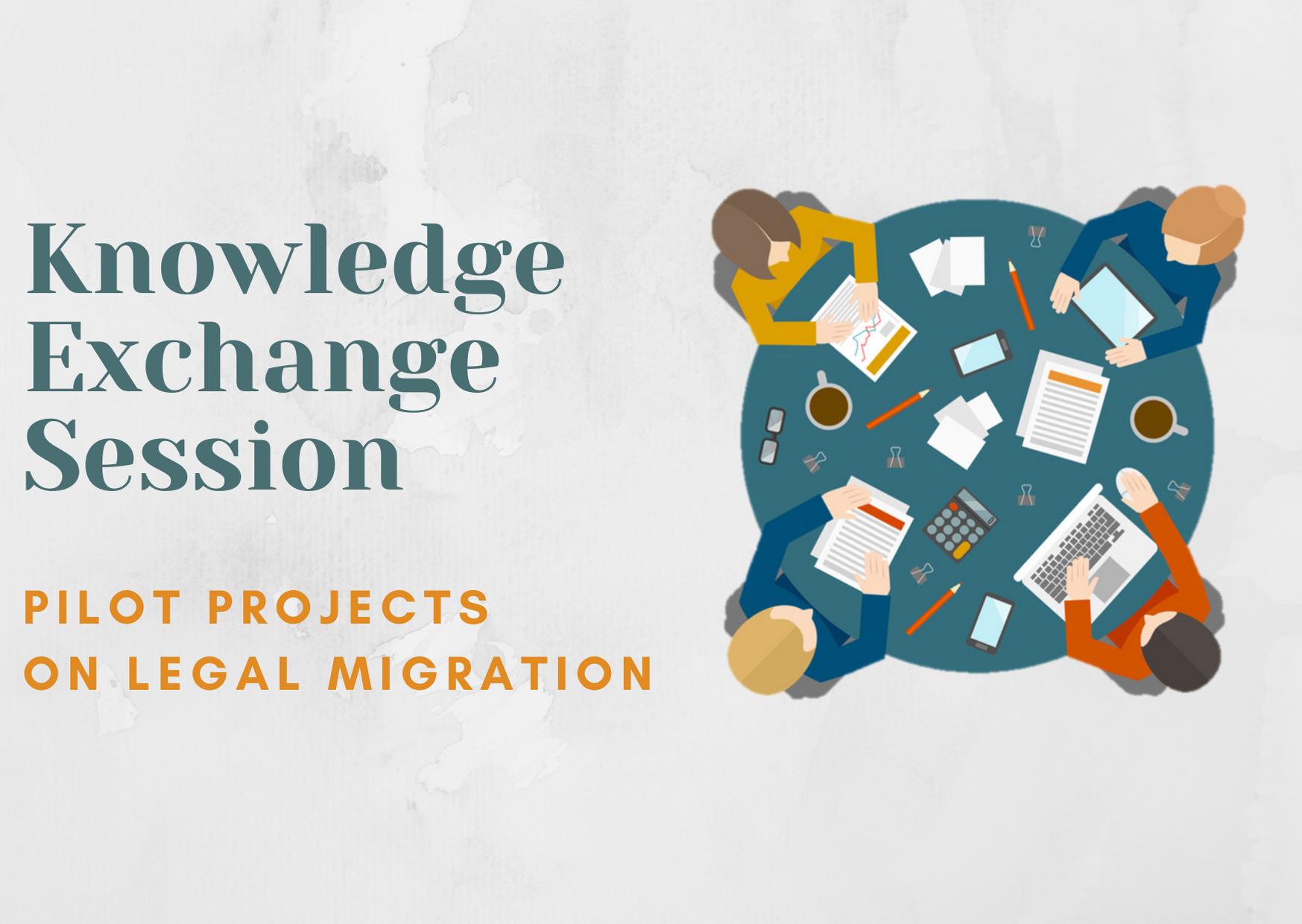On November 13, 2019, the 1st Knowledge Exchange Session of the Pilot Projects on Legal Migration took place at the premises of the European Commission’s Directorate-General for Migration and Home Affairs (DG HOME) in Brussels. Approximately 50 participants (including representatives from DG HOME and the Directorate-General for Neighbourhood and Enlargement Negotiations (DG NEAR), the MPF pilot project coordinators, European Union (EU) Member States (MS), as well as IOM Belgium, GIZ and ILO, and actors interested in launching pilot projects, engaged in dynamic discussions to share past and current experiences and knowledge building for future opportunities.
As all pilot projects are in their implementation phase, project coordinators were able to draw on their varied insights gained thus far.
The daylong event was guided by four themes, allowing participants to focus on both overarching challenges and the technical details of launching and implementing pilot projects. The 1st Working Session was devoted to preparatory measures and labour market mapping strategies. Key steps discussed included the importance of a project design based on thorough (labour) market research and analysis. Where reliable data is not available, carrying out structured research early on in the project lifecycle is recommended, as is creating effective communication channels and bringing stakeholders together promptly. Some of the pilot projects found innovative ways to do so, including centralising relevant information via online collaboration tools, and establishing advisory bodies to add value to the joint work with partners from a variety of backgrounds.
The 2nd Working Session was dedicated to engagement with the private sector and partner countries’ public actors. A central issue was the importance to identify and match project and private sector needs and interests. In the context of the Lithuanian pilot project, for instance, individualised strategies for company engagement were designed to enhance the appeal of short-term mobility projects and get companies on board. A further key point was that private sector engagement is also facilitated when companies are already interested in internalisation and diversification of their employees.
In the afternoon’s 3rd Working Session, focus shifted towards the technical aspects of ‘matchmaking’ between project partners and participants. The pilot project coordinators discussed the need for specific strategies to meet company interests, as well as country-level policy on the recognition of candidate skills and qualifications. Participants also reflected on the balance between assessing soft skills in addition to technical competences. In this context, the French pilot project has included a dedicated soft skill assessment module in its interview methodology, while a blended approach has been used in the Lithuanian case, where early encounters between candidates and companies allowed personal connections to be built from an early stage. The Spanish project, on the other hand, included the enhancement of soft skills in the curriculum for Master students supported by the project.
In the final Working Session, participants discussed their efforts to prepare the reintegration process for candidates following mobility in the respective EU MS. A key takeaway was that strong partnerships are important in the preparation of reintegration, with not only partner country authorities and actors in the private sector, but also potentially diaspora organisations. From a Spanish perspective, there is a plan to involve credit institutions to explore the possible provision of start-up financing for entrepreneurial projects following candidate returns to Morocco.
The event closed with DG HOME reiterating the importance of legal and labour migration as part of the next Commission’s agenda. ICMPD emphasised its continued commitment to support and accompany pilot projects in their work on this important topic, as well as in the framework of a new MPF call for proposals expected for January 2020. Thorough analysis and contextualisation of processes and practices, including via knowledge exchange events, remain key to enable meaningful, sustainable and future-oriented partnerships on migration.

